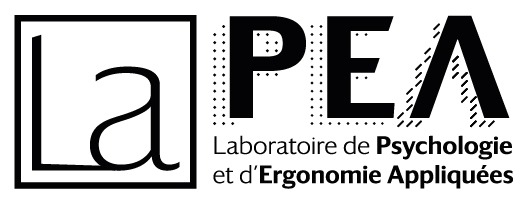Séminaire de Tiffany Morisseau: When accuracy matters and when it doesn’t: motivational factors of epistemic vigilance towards scientific information.
Ce séminaire sera l’occasion de passer en revue les différentes voies de recherche qui ont été explorées en psychologie cognitive concernant la consommation de fausses informations et ses conséquences sur la confiance dans l’information scientifique.
Jeudi 11 Mars 2021
Résumé
In this presentation, I start by making a quick review of the different research avenues that have been explored in cognitive psychology relative to people’s consumption of misinformation and its consequences for trust in scientific information. I then explore a complementary perspective, drawing on the idea that citizens are in fact able to question doubtful information they encounter in the media, when truth matters from their point of view. I present two hypotheses: First, that the decision-making relevance of scientific information can be small from the individual point of view. Second, that any piece of information, including scientific information, can become relevant regardless of its accuracy, when emotional and social stakes come into play. Finally, I suggest some practical implications that can be derived from these hypotheses.
Biosketch de la chercheuse
Tiffany Morisseau is a researcher in Cognitive Psychology and Research Manager at Strane Innovation (strane-innovation.com). Since January 2021, she is affiliated with the Laboratory of Applied Psychology and Ergonomics (LaPEA, University of Paris). She holds a Master’s degree in Management from AUDENCIA Business School (Nantes, France) and a PhD in Cognitive Psychology from the University of Lyon. Her current research projects mainly focus on the question of epistemic trust and vigilance, and the socio-cognitive mechanisms underlying how people come to process scientific information.
She is a member of the H2020 PERITIA consortium (peritia-trust.eu) and leads the Psychology part. This multidisciplinary project deals with the conditions of public trust in scientific experts and brings together researchers in philosophy, psychology, political science and media science.
À lire aussi

Alexandre Oboeuf : “Créer en jouant : la créativité motrice en situation incertaine”
Jeudi 19 juin 2025 à 10h30 en 2036. © Résumé : Dans les sports collectifs, que ce soit en club ou à l’école, la performance est souvent réduite à des critères physiques, techniques ou tactiques. Pourtant, les individus les plus performants ne sont pas...

Raphaël Juillard : “Le Chercheur-Obstacle : Pour l’Étude du Moteur Créatif, entre Anthropologie et Psychologie”
Jeudi 27 mars 2025 à 10h30 en 1046. © Résumé : Le moteur créatif serait ce qui permet à l’artiste de traverser et progresser dans les étapes (Wallas, 1926) du processus créatif. Le Chercheur-Obstacle est un cadre théorique et méthodologique cherchant à en...

Jordan Navarro : De la coopération Homme-Machine à la symbiose Humain-Technologie
Jeudi 13 mars 2025 à 10h30 © Résumé : Un premier volet de la présentation portera sur les coordinations perceptivo-motrices en conduite automobile manuelle et assistée. Le second volet traitera de l’automatisation de l’activité de conduite automobile. Il...

Séminaire de Bernard Andrieu : “Les dessins de conscience : Une méthodologie émersive par une théorie du corps”
Jeudi 16 janvier 2025 © Résumé : La cognition incarnée est le courant théorique dans lequel nos doctorant.e.s et moi-même nous inscrivons, ainsi que l’émersiologie par nos travaux, en autres, avec Alain Berthoz (Collège de France), Richard Shusterman (USA),...
